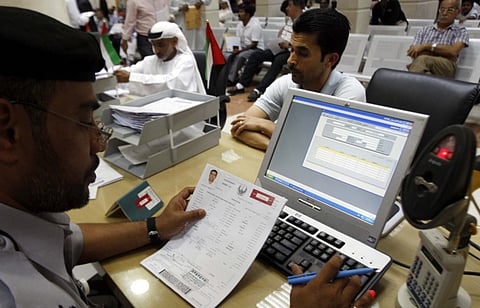New visa and investment rules in UAE: Your queries answered
Here are some of the key questions on the new decisions on visa and investment rules in UAE

Dubai: The UAE has announced sweeping new reforms to allow 100 per cent foreign ownership in companies and long-term residence visas for skilled and creative employment categories.
The decisions, made during a Cabinet meeting on Sunday chaired by His Highness Shaikh Mohammad Bin Rashid Al Maktoum, Vice-President and Prime Minister of the UAE and Ruler of Dubai, will reinforce the UAE’s position as a top destination for international investors and global talent.
Here are some of the key questions with regards to the new decisions:
What is the new rule regarding 10-year residence visas?
Under the new category of visas announced on Sunday, 10-year residency visas will be granted for investors and specialists in medical, technical and research fields, as well as for all scientists and innovators. These categories would include but not be restricted to doctors and engineers, and the long-term visas will also cover the families of every such eligible person.
Will categories such as MBA degree holders, pharmacists, nurses, teachers and lawyers considered professional?
It is not exactly clear which categories will be covered under the various specialists mentioned by the Cabinet decision. Shaikh Mohammad cited doctors and engineers as examples in his tweets, and the categories eligible for 10-year residence visas will extend to various professions.
Will the professionals being granted a 10-year visa need to invest anything in the UAE? How much will this visa cost?
No, listed professional categories do not need to invest anything to qualify for the 10-year visa, unless they are applying as investors. The details of the new visa system, including the cost, are still awaited.
What about new visas for students?
The new rules grant five-year residency visas for students studying in the UAE. The Cabinet has also asked for a review of the residency system and extend residency permits of students who are sponsored by their parents, after completing their university studies. This will help such students with future residence and possible employment in the UAE. Currently, students in the UAE need to renew their visa every year.
What is the criteria for selecting exceptional students?
It also has a provision of 10-year visas for “exceptional” students — though the exact criteria for who will make up exceptional students has not been announced yet. It is also not clear whether such students need to be based in the UAE or those from abroad can also apply.
Is the new 10-year visa linked to employment?
The Cabinet decision clearly said that the new visas are residence permits that will be granted to selected categories of professionals, investors, innovators and those in creative fields. It outlined some of those categories as those working in medical, technical, research and engineering fields. However, the exact ramification of this and whether such residence permits will allow specialists to be able to switch their job contracts is not yet clear.
What are the new rules for 100% foreign investment?
Under the new decision, foreign companies will be allowed to own 100 per cent of their business in the UAE outside free zones — a major departure from the current practice of requiring an Emirati partner with a majority stake. Currently, only companies based in various free zones around the UAE were eligible for the 100 per cent ownership rule. Further, foreign investors establishing a business or simply investing money in the UAE will now be eligible for a visa of up to 10 years. A range of businesses — from start-ups to city-based trades to knowledge economy companies — will be the biggest benefactors from the decision. This will also attract new capital infusion into the UAE economy from investors around the world.
When will these measures come into effect?
Shaikh Mohammad has directed the Ministry of Economy to implement the resolution and follow up on its developments, in coordination with all concerned stakeholders. He has asked for a detailed report to be submitted in the third quarter of this year, and the measures will come into force by the end of 2018.
Why did the UAE undertake these new measures?
The Cabinet resolutions mark a bold new era for the UAE, but they are in line with the UAE leadership’s continued focus on attracting top international investments as well as exceptional talent to the country and build a solid foundation for a diversified knowledge economy. The UAE is already the most diversified and open economy in the Middle East, but these policies with long-term implications will further lift the UAE’s economic competitiveness globally.
How will these measures help the UAE?
In the words of Shaikh Mohammad, the UAE “will remain a global incubator for exceptional talents and a permanent destination for international investors. Our open environment, tolerant values, infrastructure and flexible legislation are the best plan to attract global investment and exceptional talents to the UAE”. That position will not only transform the quality of the UAE’s workforce, but also ensure social and economic stability and ensure a strong surge in home-grown talent. Along with that, the funds remitted by the UAE’s expat population — which stood at Dh164.3 billion in 2017 — could well be spent back in the local economy if residents settle in the country and possibly invest in the local real estate due to the benefit of a long-term visa.
How did the UAE markets react to the news?
Markets in the UAE rallied on Monday on the news, led mainly by property stocks: Shares of DAMAC and Aldar Properties both jumped over one per cent. Traders said the Cabinet decision will give comfort to investors in the country, especially property owners.
Sign up for the Daily Briefing
Get the latest news and updates straight to your inbox



